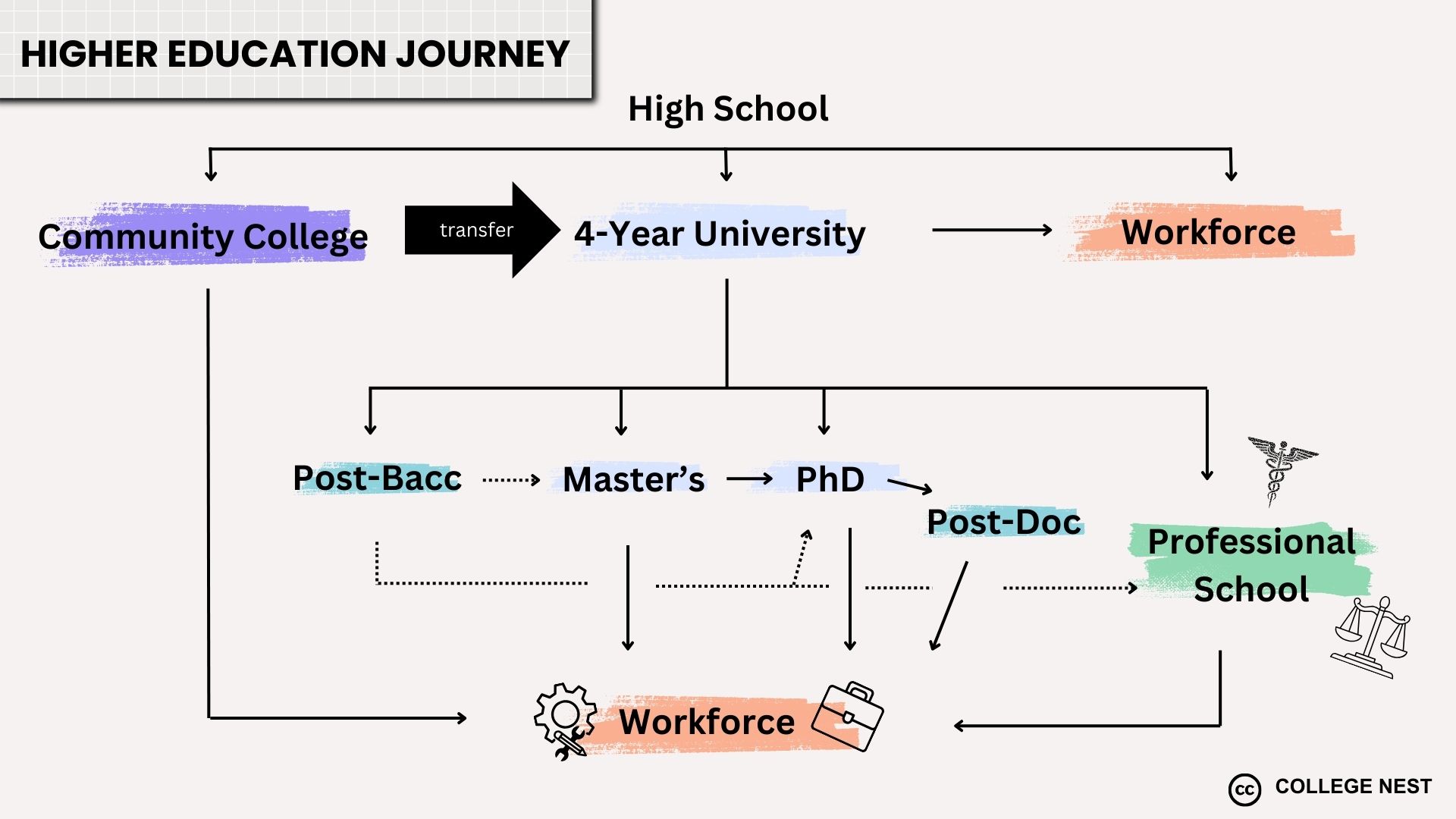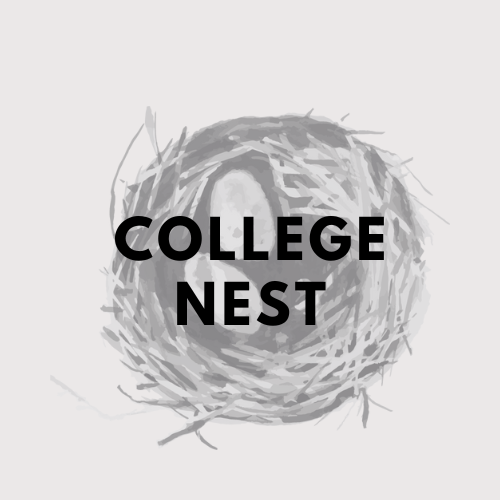COLLEGE NEST
created with home in mind - a nest to always come back to
About
COLLEGE NEST was founded by a first-generation college student who recognizes the challenges and isolation that can accompany the journey of navigating higher education.
OUR MISSION is to provide a comprehensive site that supports individuals in navigating all facets of higher education, from the college or university application process to postgraduate and professional programs. We know that there are thousands of resources available online, but filtering through the useful ones can be a tedious task. Our goal is to help you save time by highlighting free and helpful resources.
We believe that 'everyone has a right to education' (Universal Declaration of Human Rights, Article 26, 1948) and that access to education should not be gatekept.
Please note that our current resources are focused on assisting individuals navigate the higher educational system in the United States.
Learning will never quench our thirst for knowledge, but utilizing the knowledge we have gained through learning will satisfy our hearts.
Isabel (Founder, College Nest)

The above illustrates the various pathways one can take after high school. I have often heard post-high school life described as a "choose your own adventure," because it is not as sequential as grade school. Since this site focuses on navigating higher education, the options on the diagram display the most common routes, typically community college or a four-year university.
Each tab below dives deeper into each option, but we will summarize it here. In short, community college offers an associate’s degree (typically 2 years), after which you can either enter the workforce or transfer to a four-year university to get a bachelor's degree (BA or BS). After getting your bachelor's, you again have multiple options, depending on your end goal.
If graduate school is part of your journey to get to your end goal, the typical route is pursuing a master's degree or doctoral degree (PhD). A master's degree usually takes 2 years, mostly focusing on coursework with some focusing on research as well (resulting in a thesis). Some PhD programs require a master's degree, while some do not. Another option for gaining research or academic experience after your bachelor's is a post-baccalaureate (post-bacc), which is an option for those interested in pursuing medicine or research. Going to a professional program is also an option after a bachelor's, post-bacc, or master's degree. More commonly known professional programs are medical school, dental school, and law school, among others.
Basic Life Skills
Fundamental and essential skills for adulting - both personally and professionally. From basic tasks like doing laundry to learning to advocate for yourself.
Explore Life SkillsCollege or University
Whether you are thinking of attending community college or 4-year institution or are currently in college/uni, here are some resources that can help you in your journey.
Learn More about CollegePost-Baccalaureate
You've completed your bachelor's and want to further your education? Consider a post-bac. Here are some tools to help you.
Learn More about Post-BaccMaster's
Thinking of a Master's? Already in a master's program? Here are some resources for you.
Learn More about Master'sPhD
Thinking of a PhD? Already in a PhD program? Here are some resources for you.
Learn More about PhDPost-Graduate
Thinking of doing a post-graduate degree? Find some tools here.
Learn More about Post-GradProfessional School
Tools for applying and navigating specialized and advanced fields in medicine, law, education, and more.
Learn More about Professional DegreesProfessional Development
Anything from learning how to network to looking for small opportunities to acquire new skillsets.
Learn More about Professional DevelopmentEducation is the most powerful weapon which you can use to change the world.
Nelson Mandela
